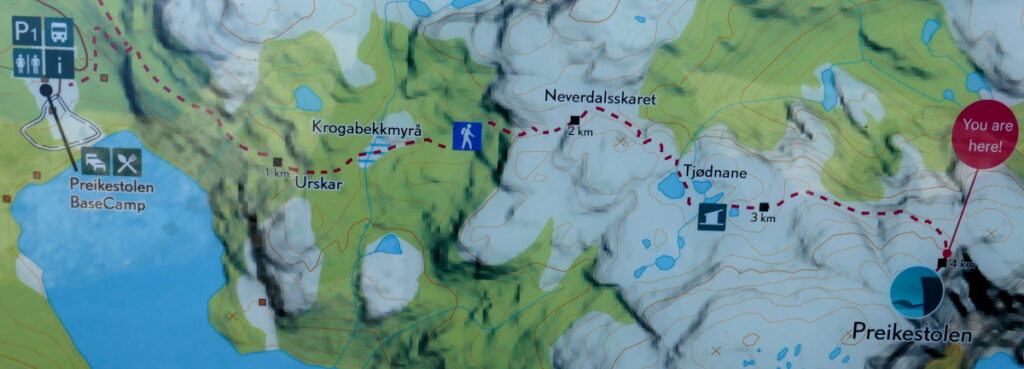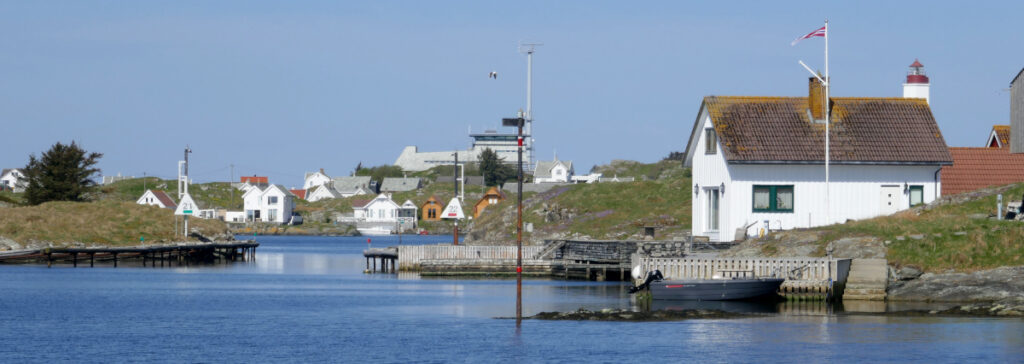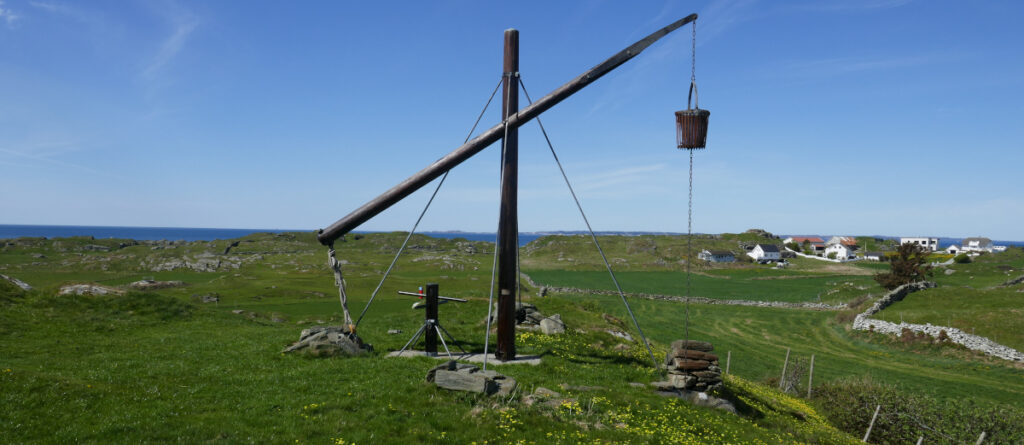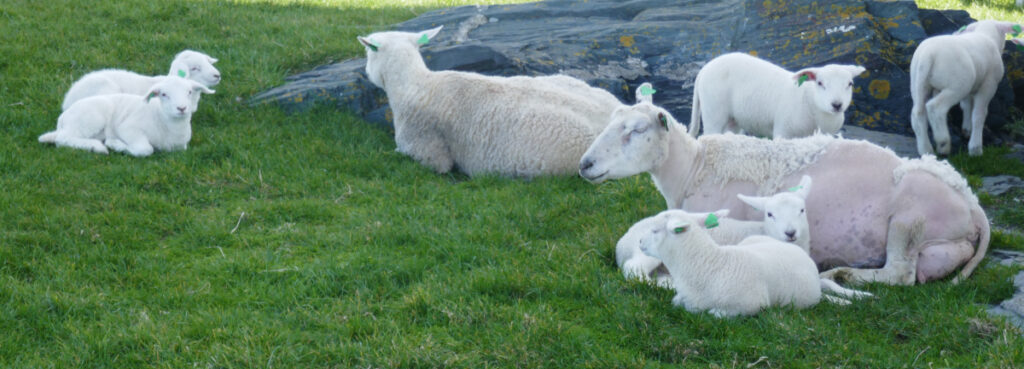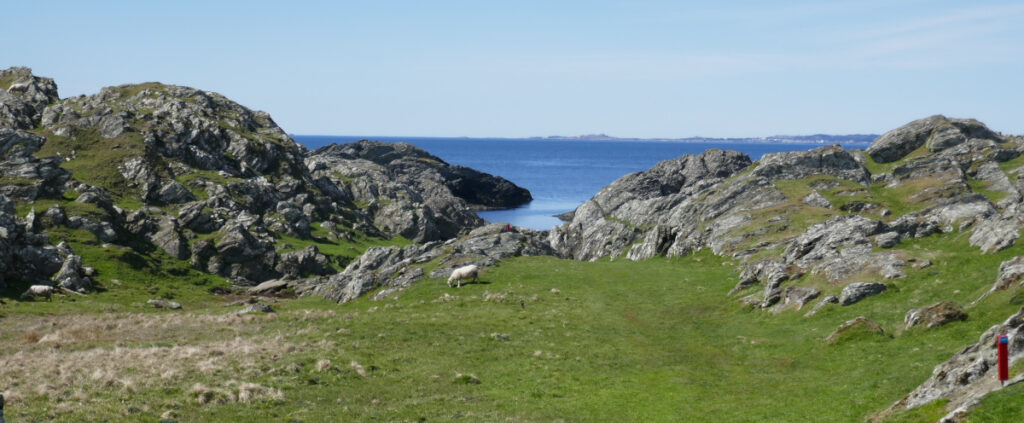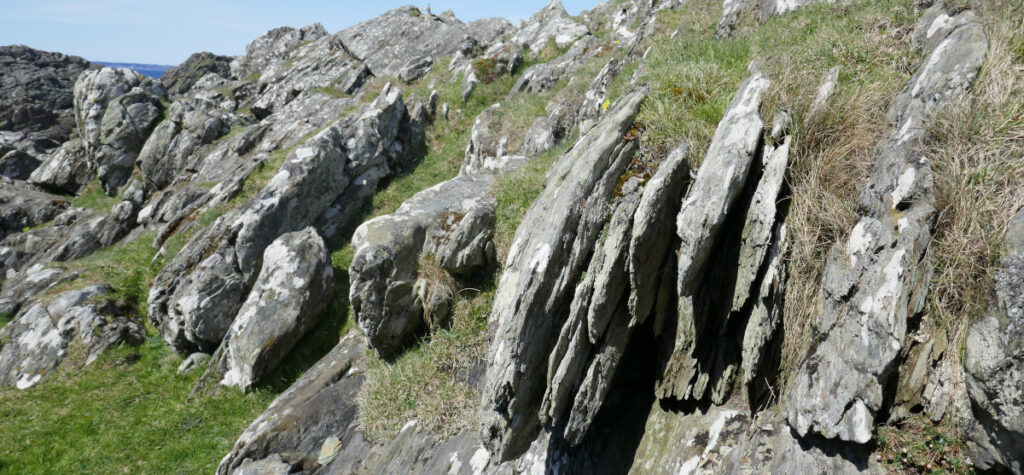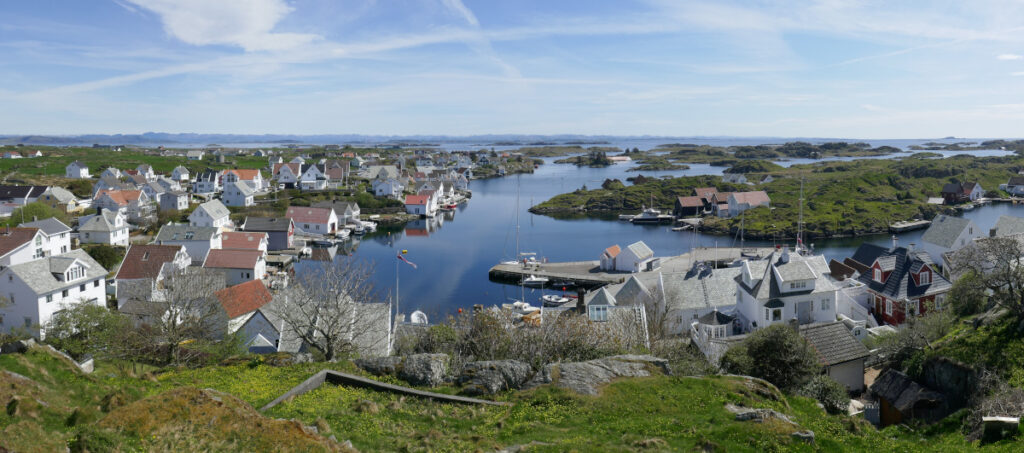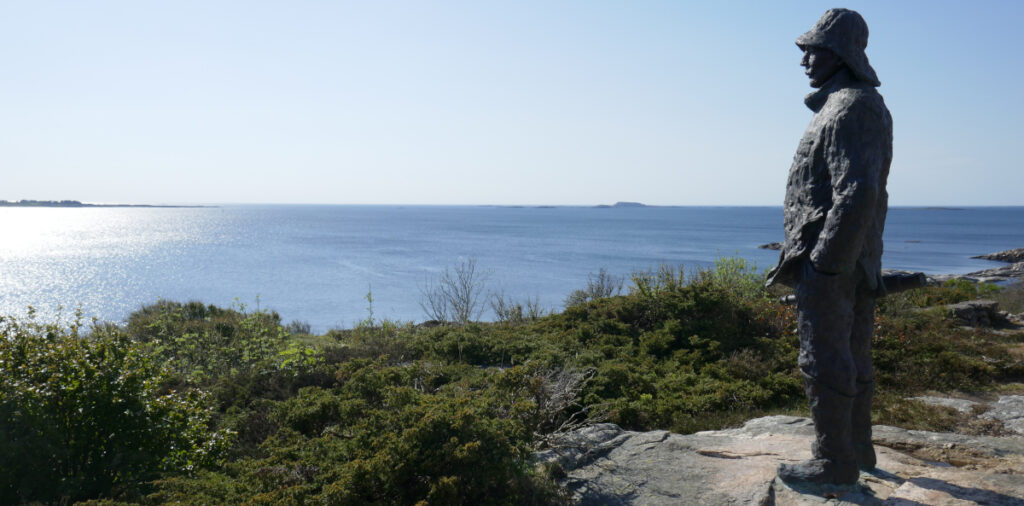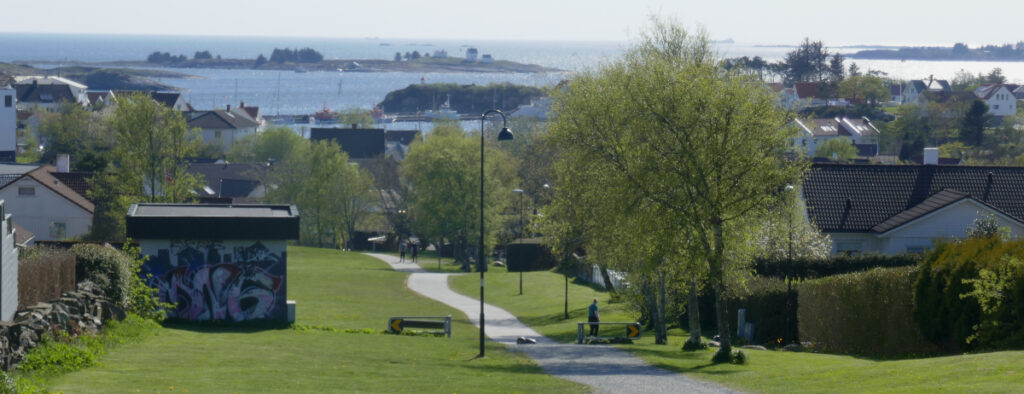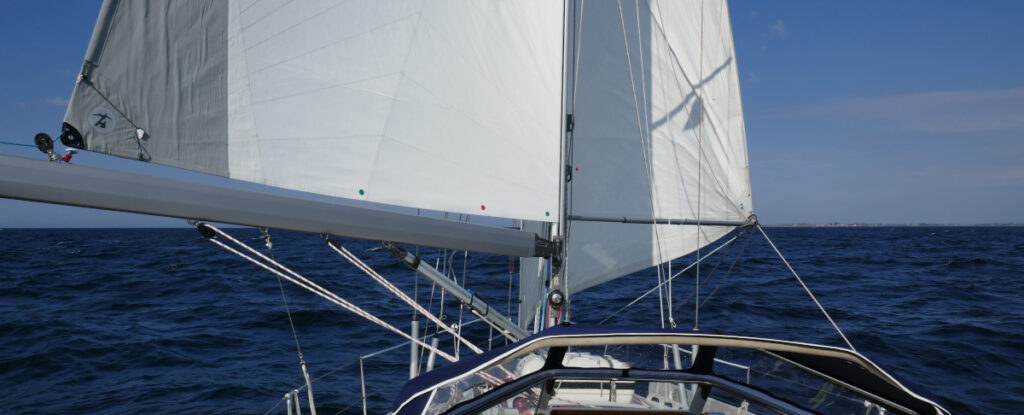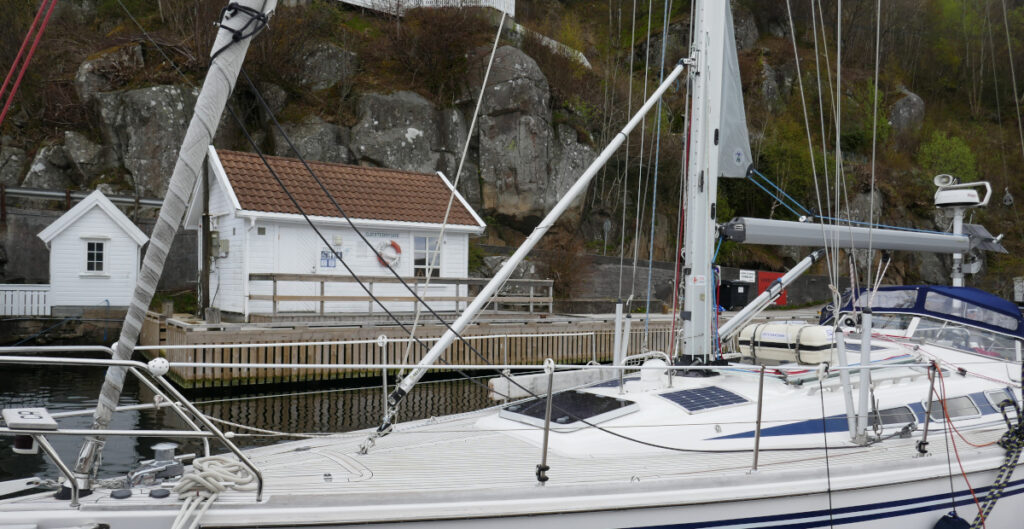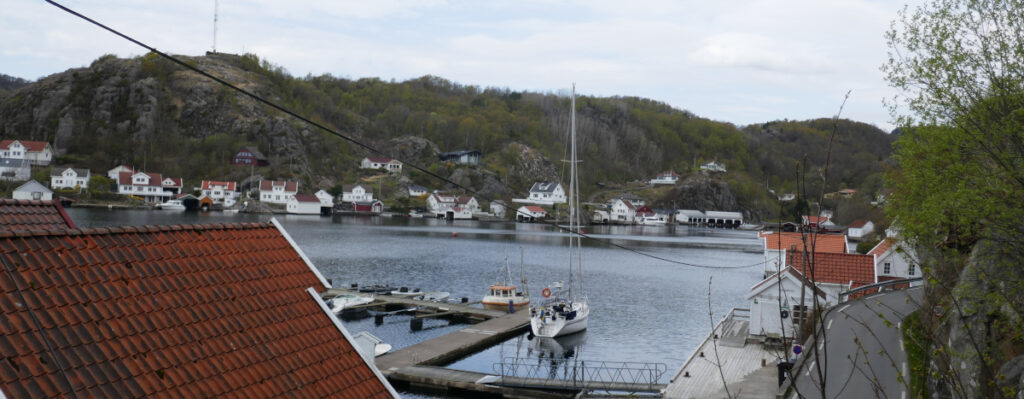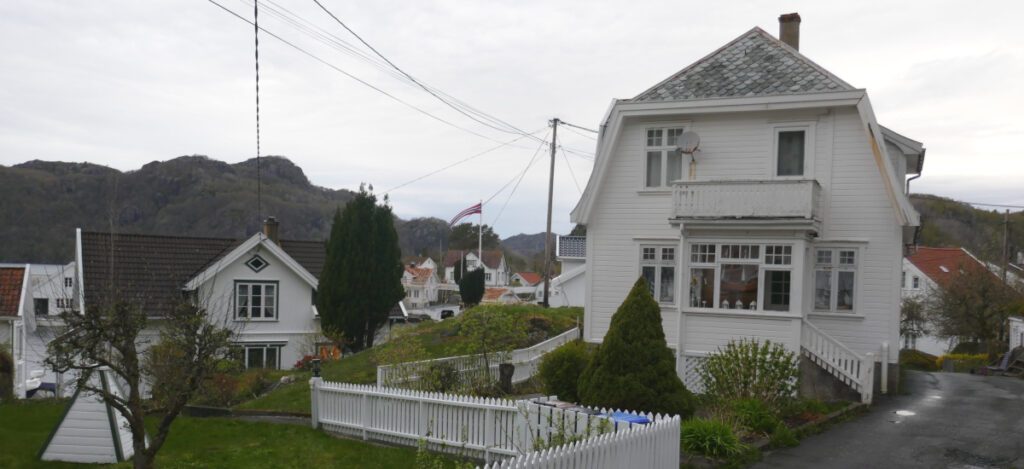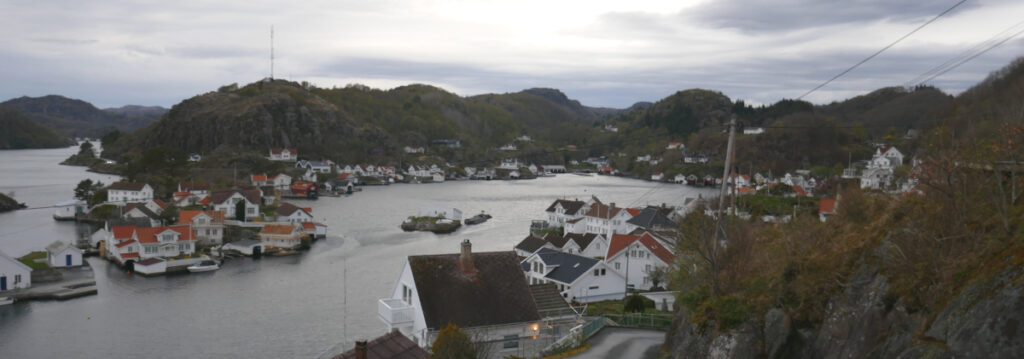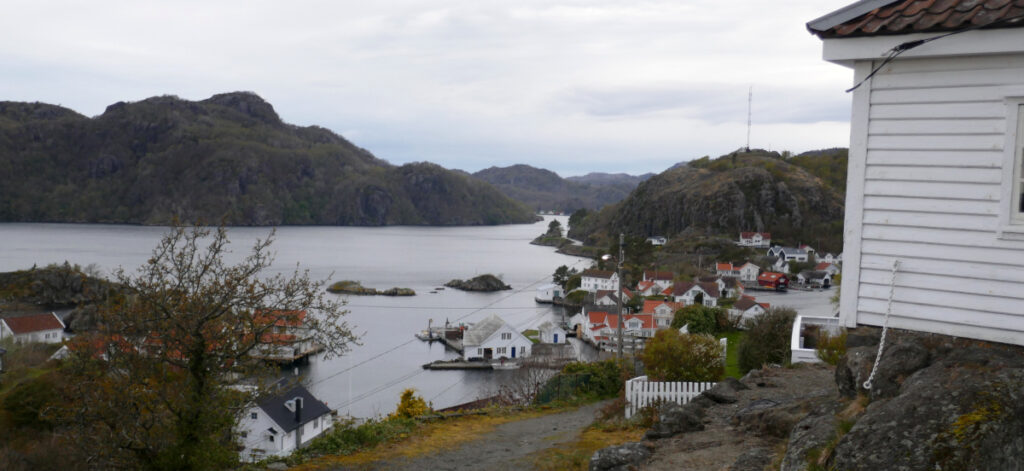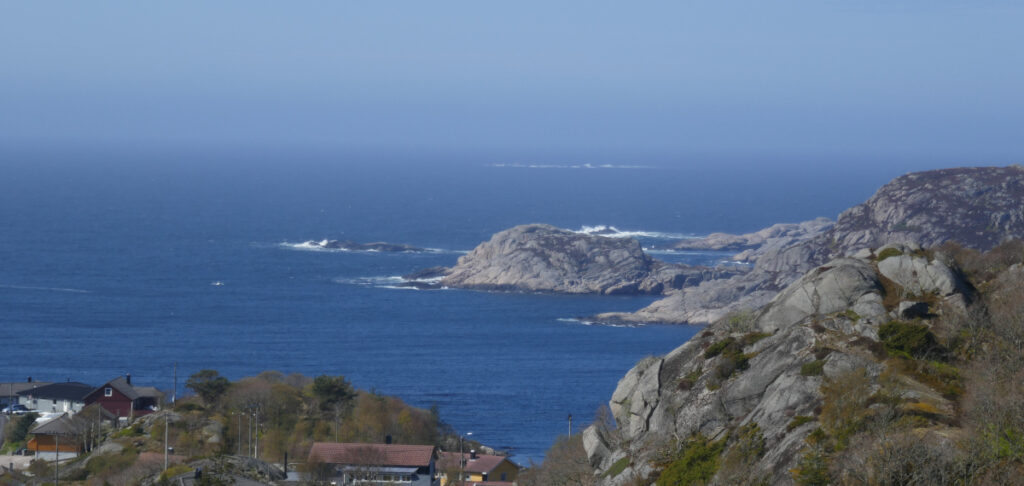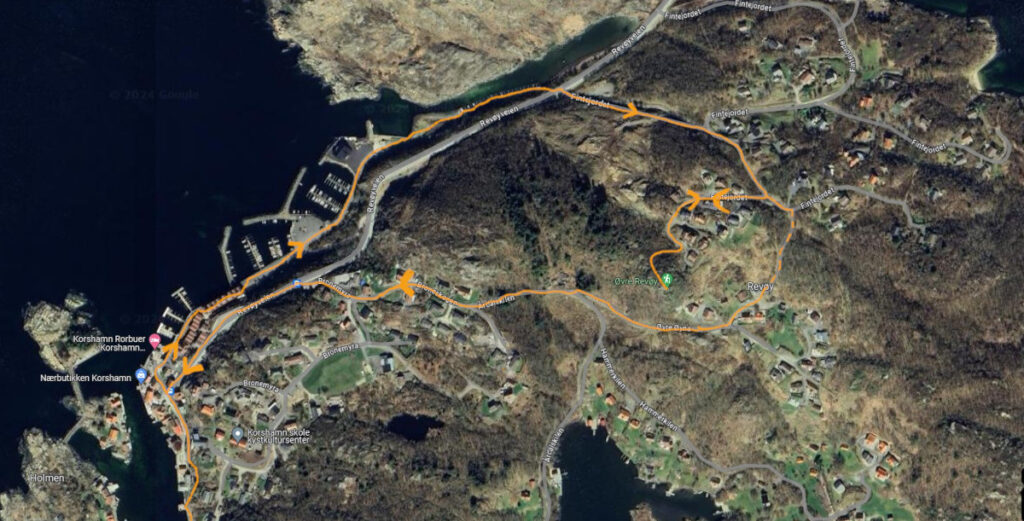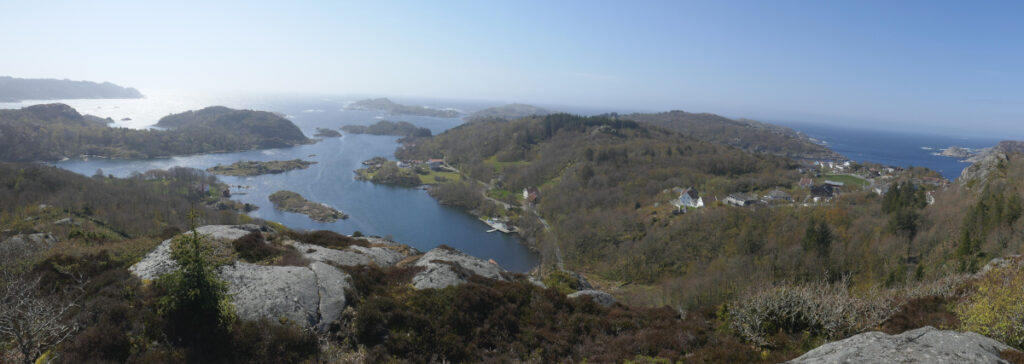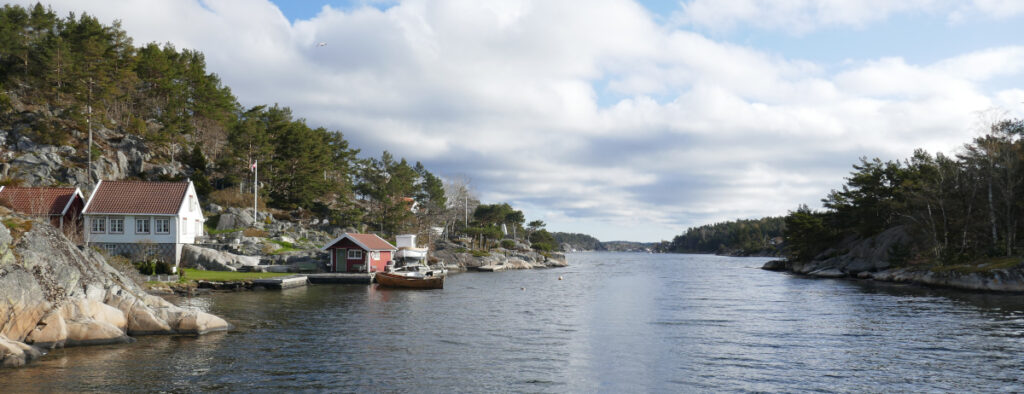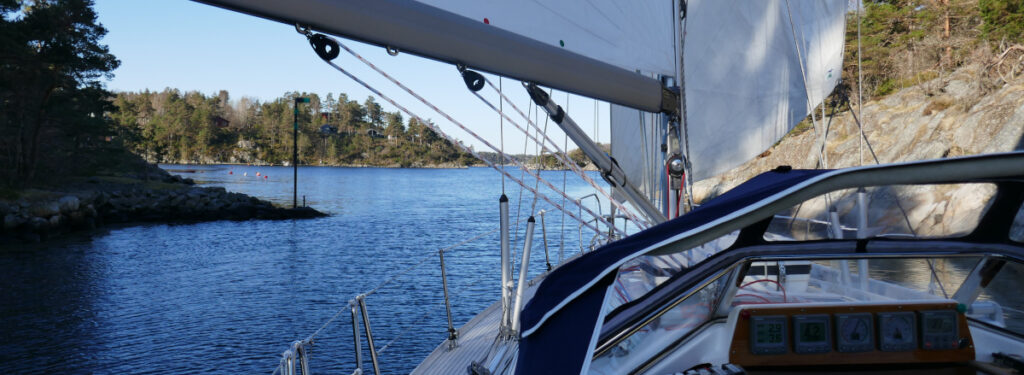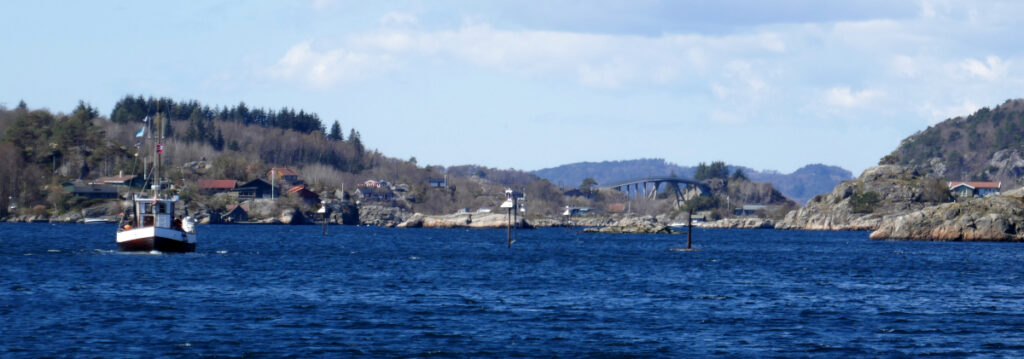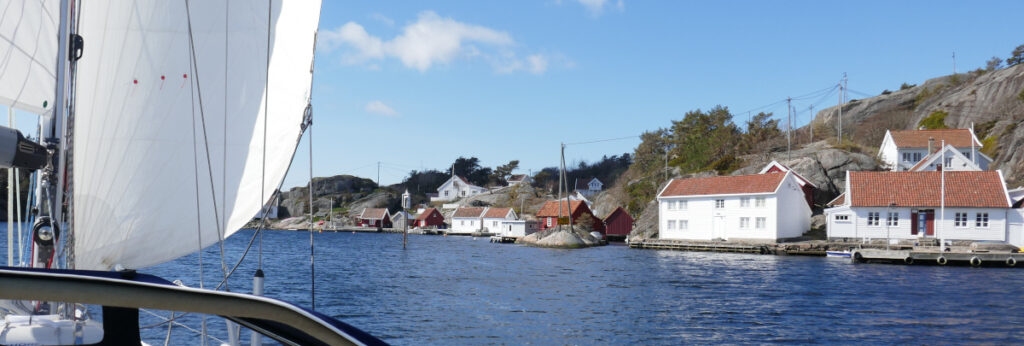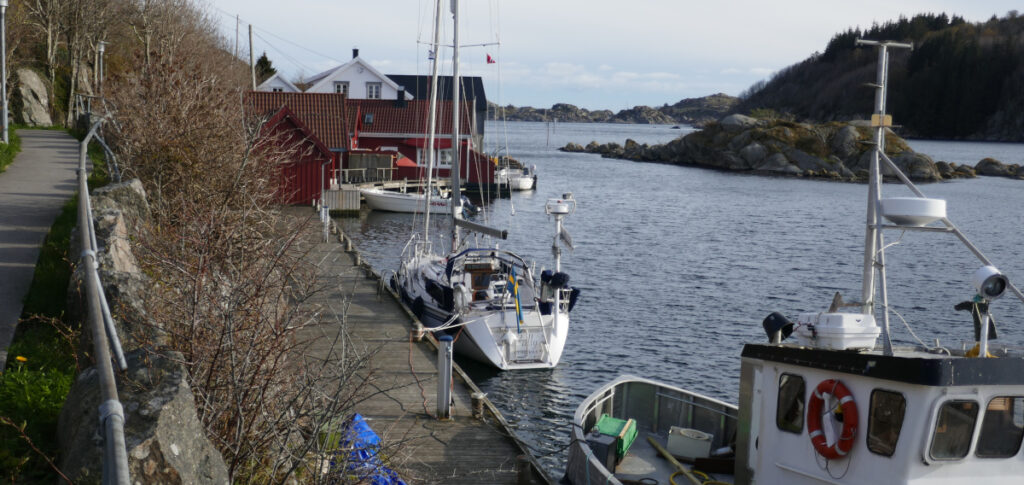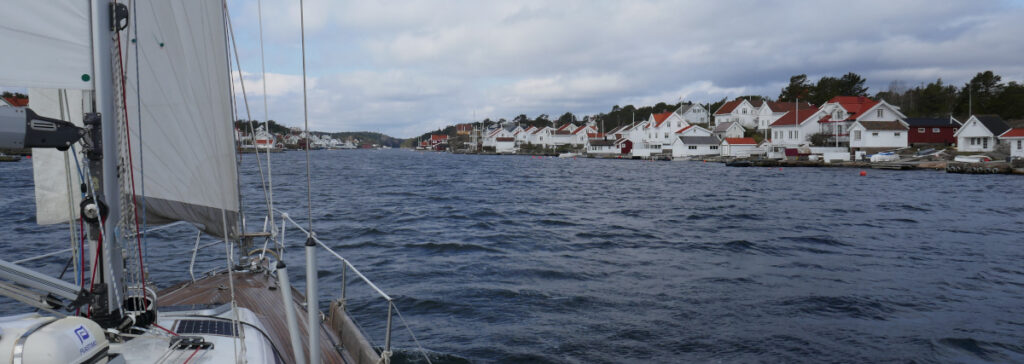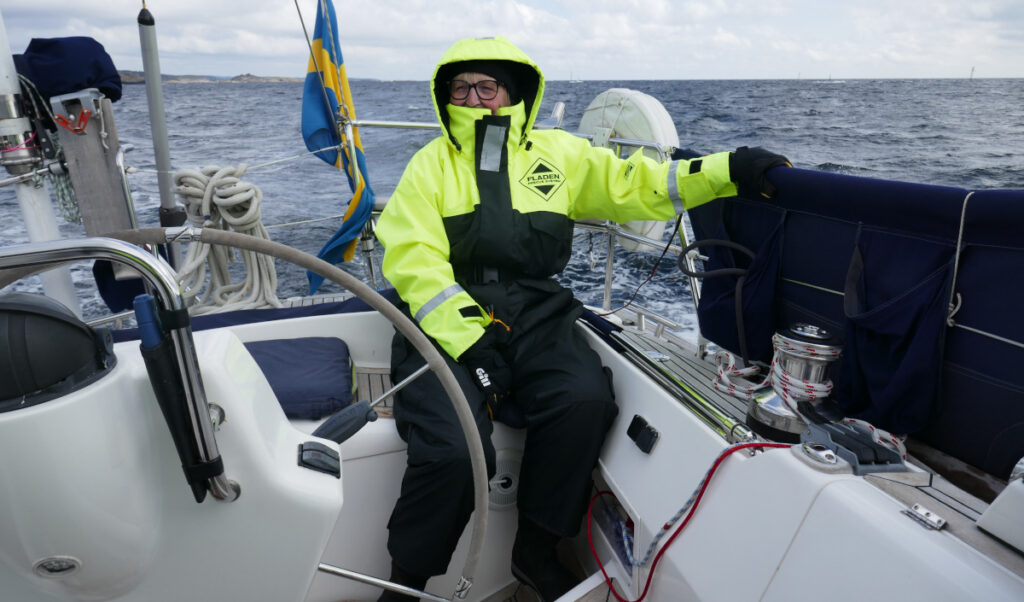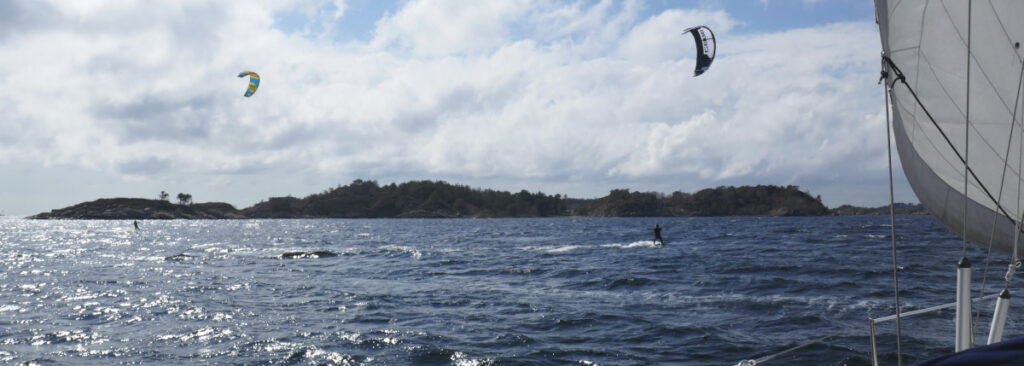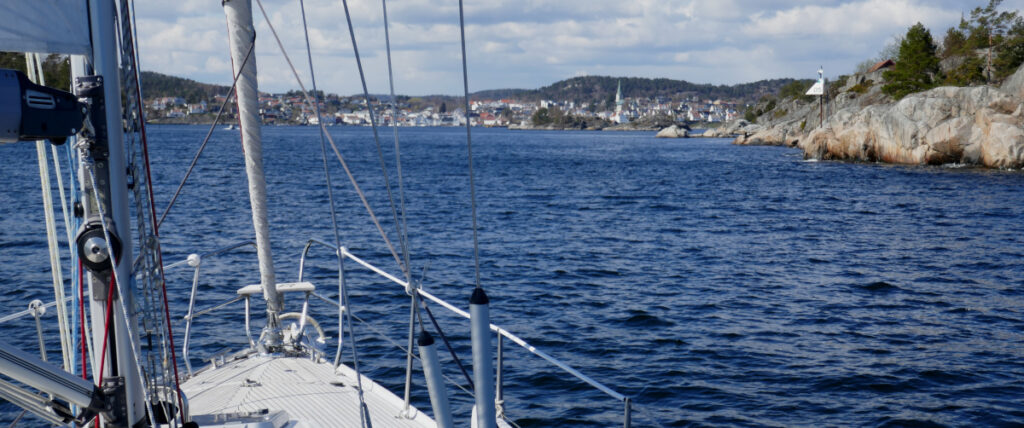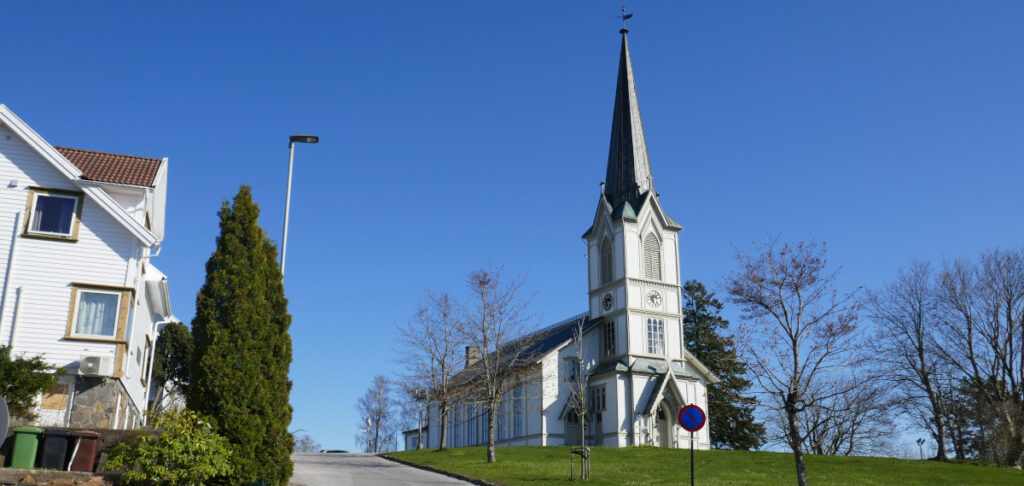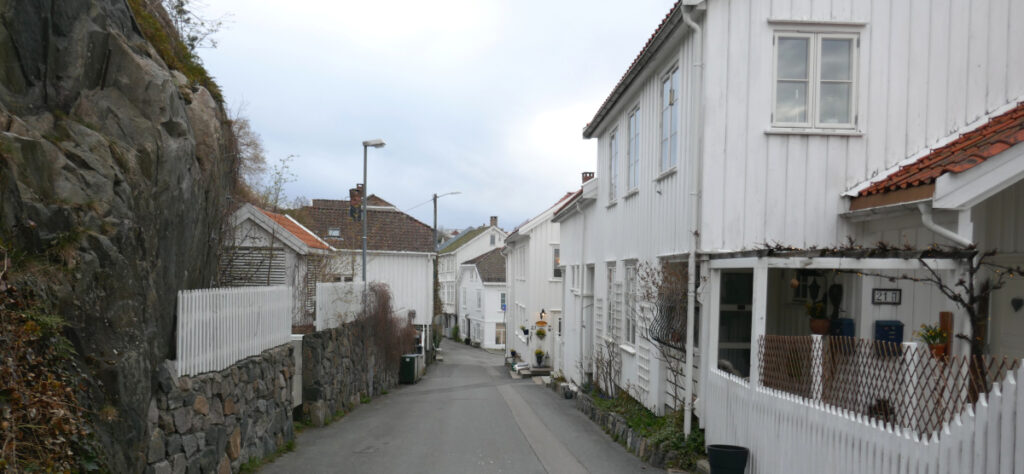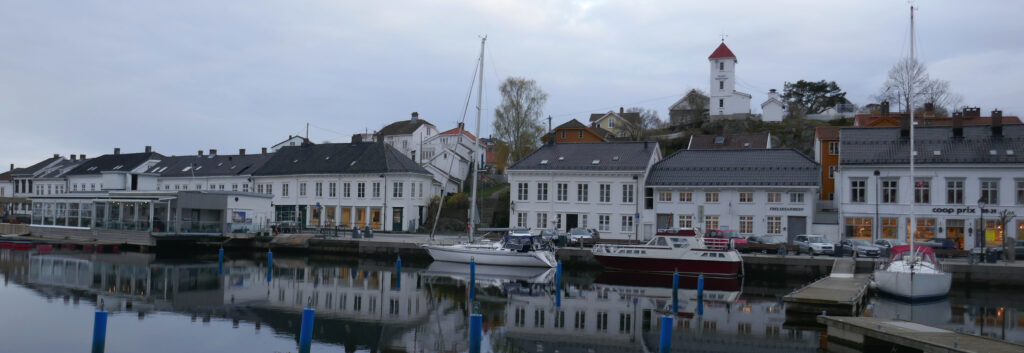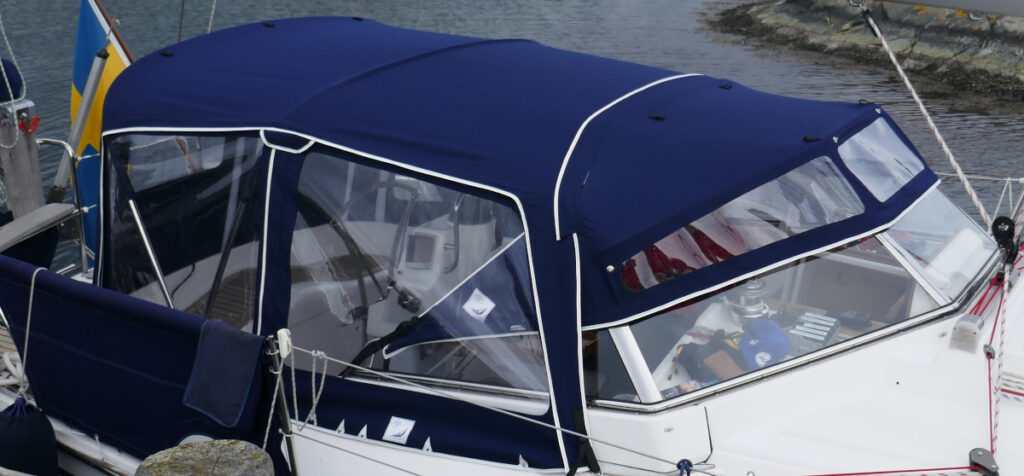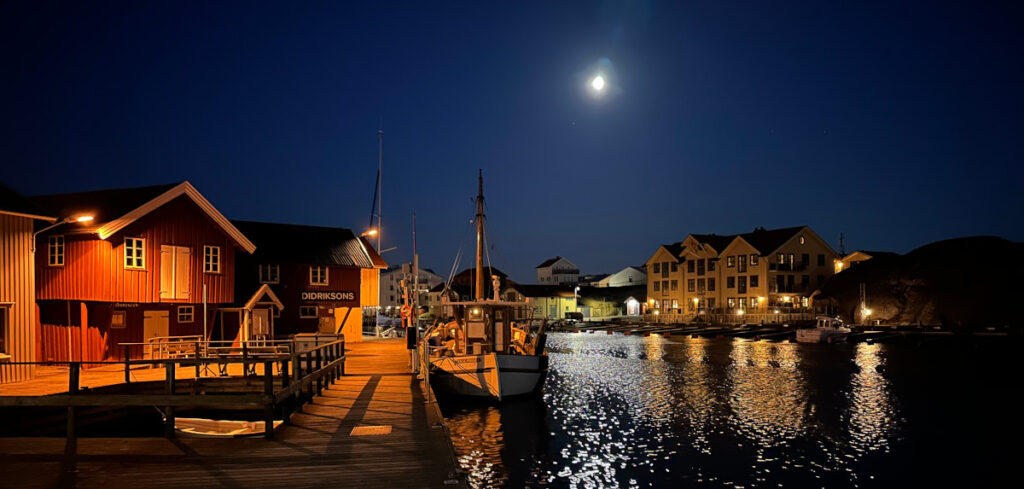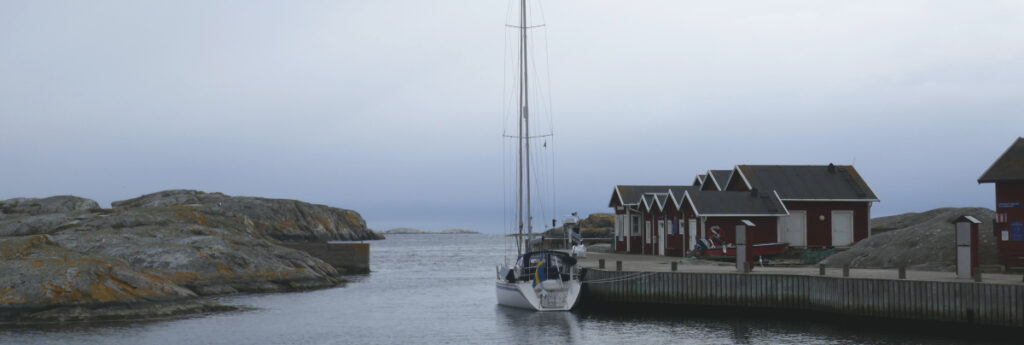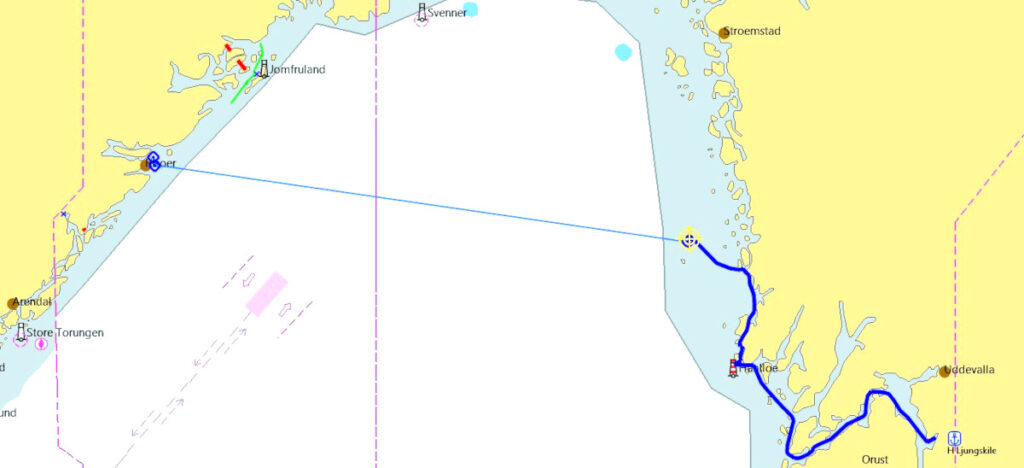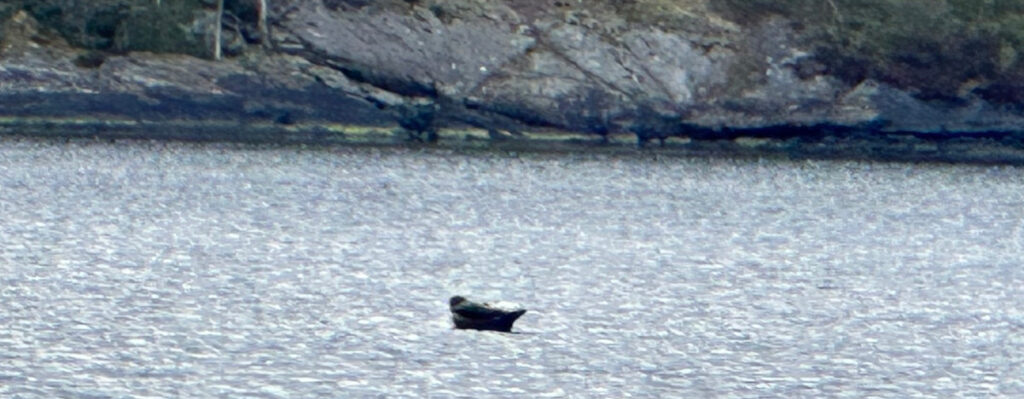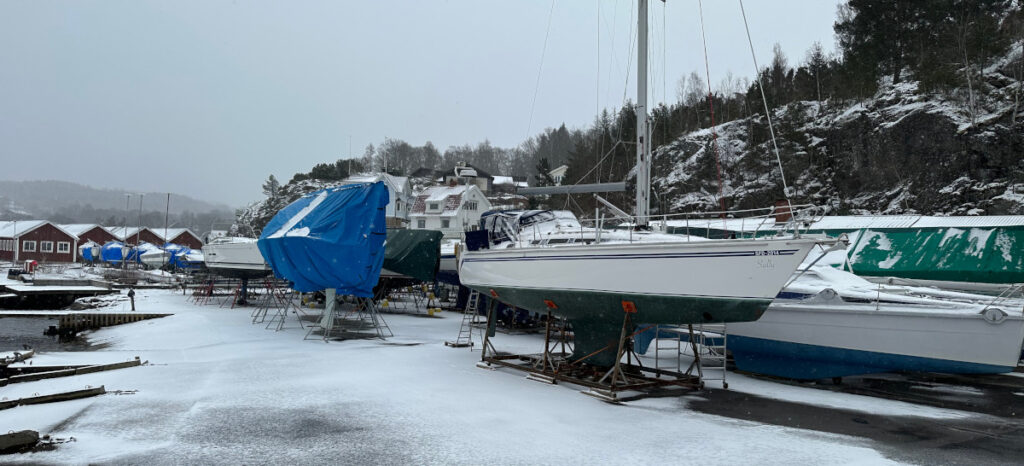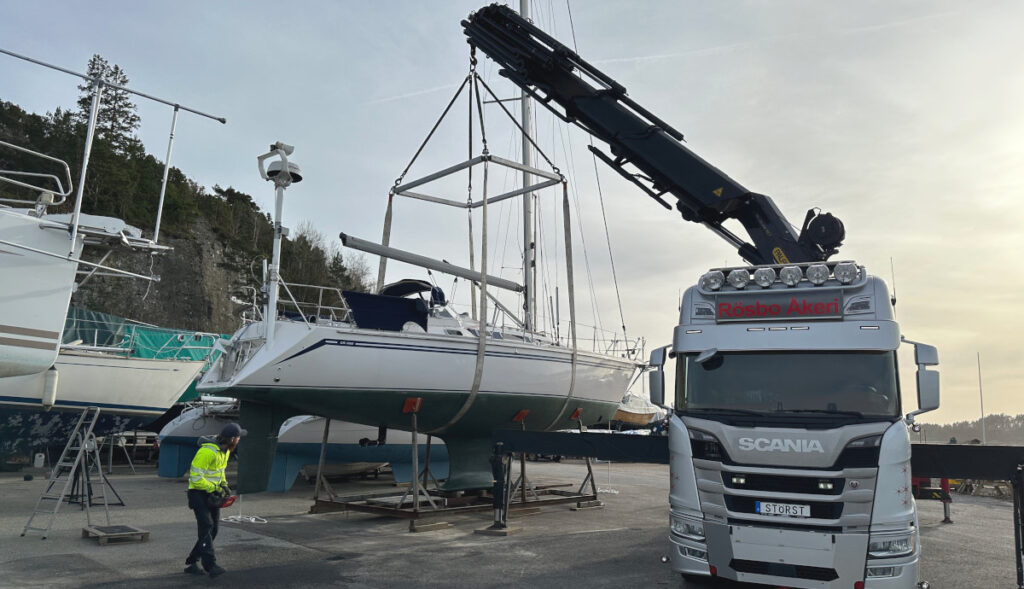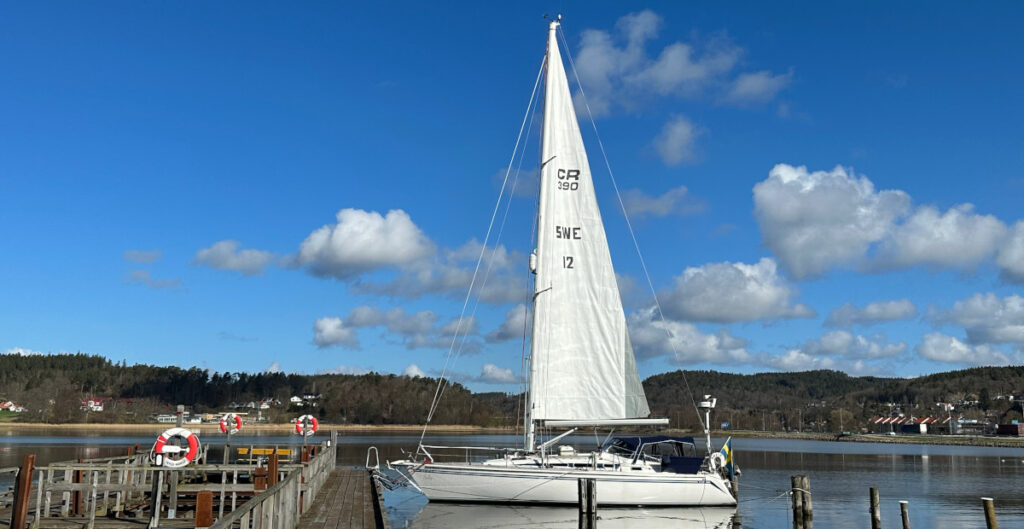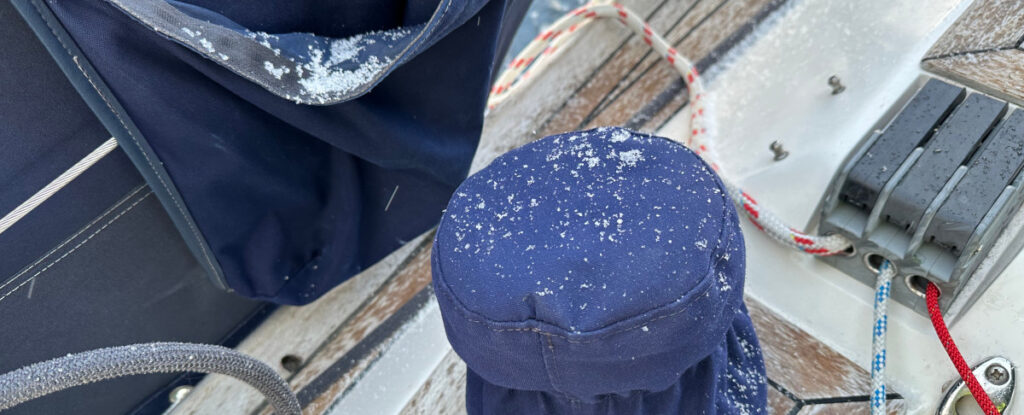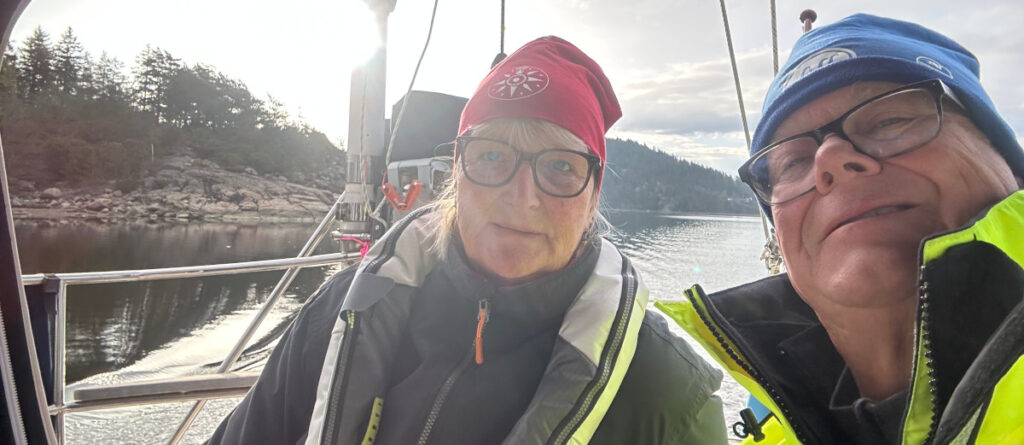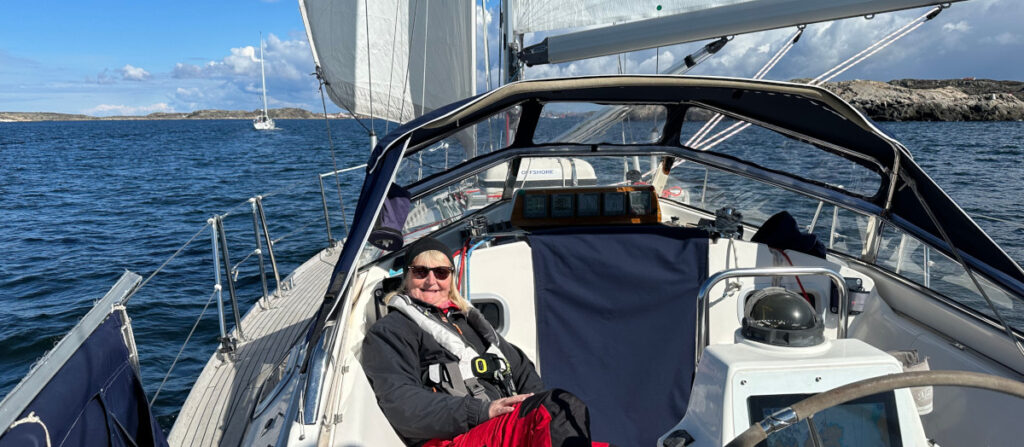Today has been a lazy day. No wind. light rain, fogy and hazy weather has not encouraged sailing. Yesterday, on the other hand was a very intense day. We woke up to light S wind blowing us against the dock, so we decided to leave before it picked up.
We took on fuel on our way out from Kvitsoey and started sailing around eight. The moderate S wind propelled us along towards the fjords in the east. Breakfast in the cockpit and easy going.

We had light to moderate winds gradually shifting from S to N as we sailed downwind. We passed Stavanger and met this crane, when delivered, the largest in the world. It can lift 2 000 times the weight of Sally.

The plan was to head for Jorpeland (Jørpeland) from where one can take a bus a bitt up the mountain and then walk to Pulpit Rock (Preikestolen). A perfect excursion for the following day we thought – until we checked the forecast.

We docked at 12:45 and a suitable buss was leaving 13:35. We decided to go for it, and ruched form sailing mode to walking mode, redied the boat, bought the tickets online, packed food, water, extra clothes, and other tings for the walk. No time for lunch. Stressful, but we made it with a 3-minute margin that allowed Hakan to rush back to the boat to get the medicine we had forgotten to bring.
The bus took us from Jorpeland to “Pulpit Rock base camp”, some 9 km and 250 m up hill. We had return tickets for “friend”; two adults for the price on one and a half (323 NOK). (You can also go by taxi, call Kalle, the local taxi driver on +47 400 800 39)
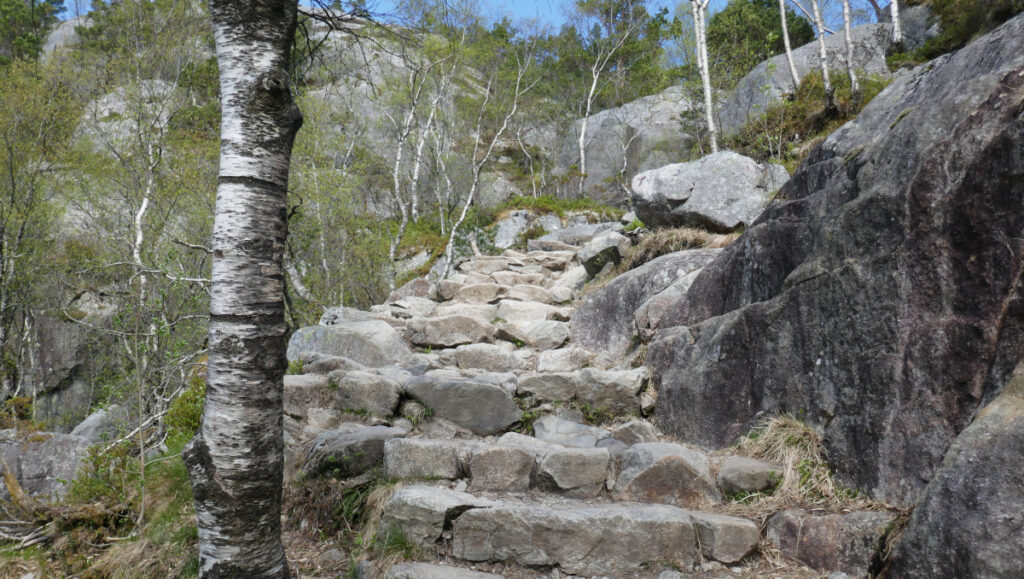
The trail from “base camp” to the rock is 4 km and very well marked. It is also “paved” with stones and wooden bridges to facilitate walking. It is obvious that there is a lot of people walking her in the season as the trail is wide and worn.
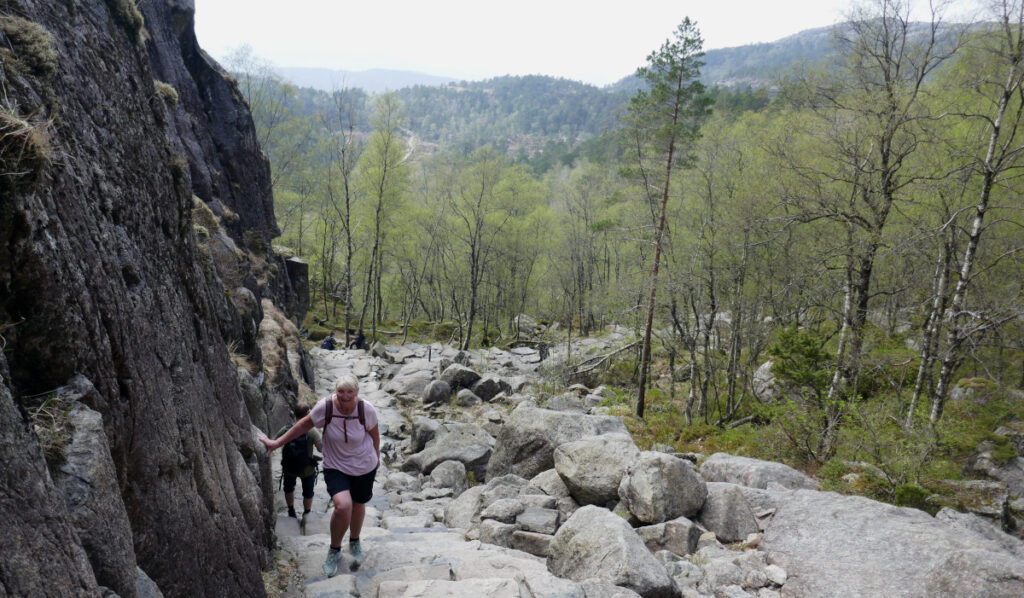
The clime is quite exhausting. All the steeper climes were on “stairs” made by rock and stones. Uneven and high steps made climbing a challenge.
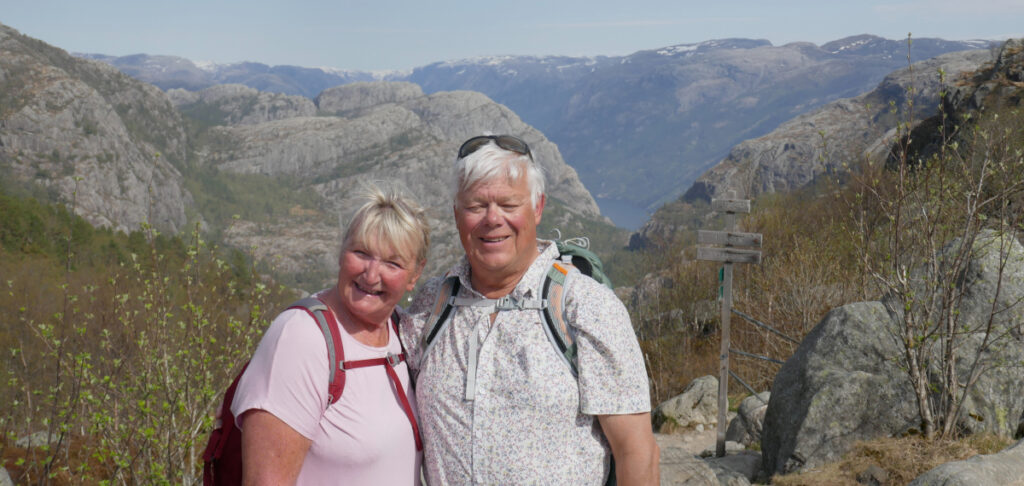
But the views on the way was beautiful.
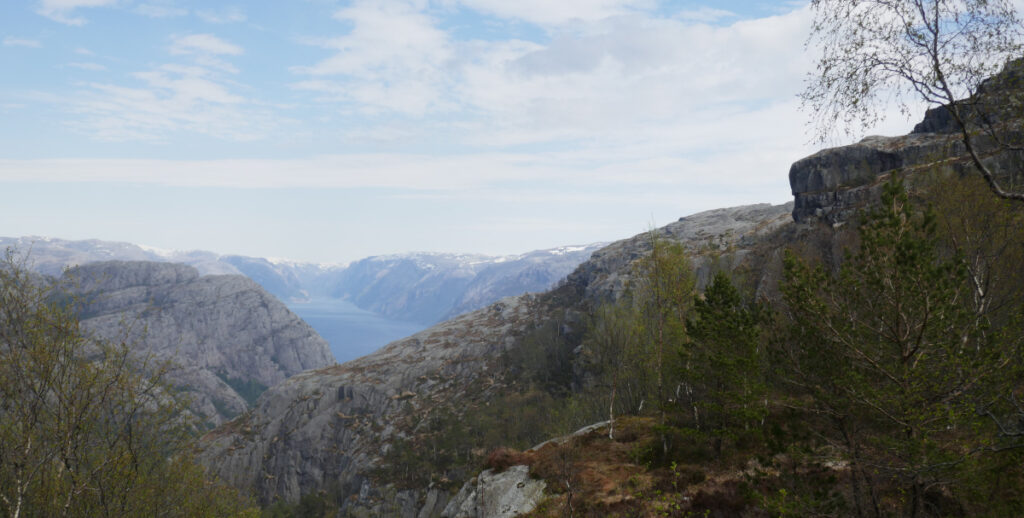
We took it in steps resting every km with some water, fruit or snacks. It took us a little more than 2 hours to reach the rock.
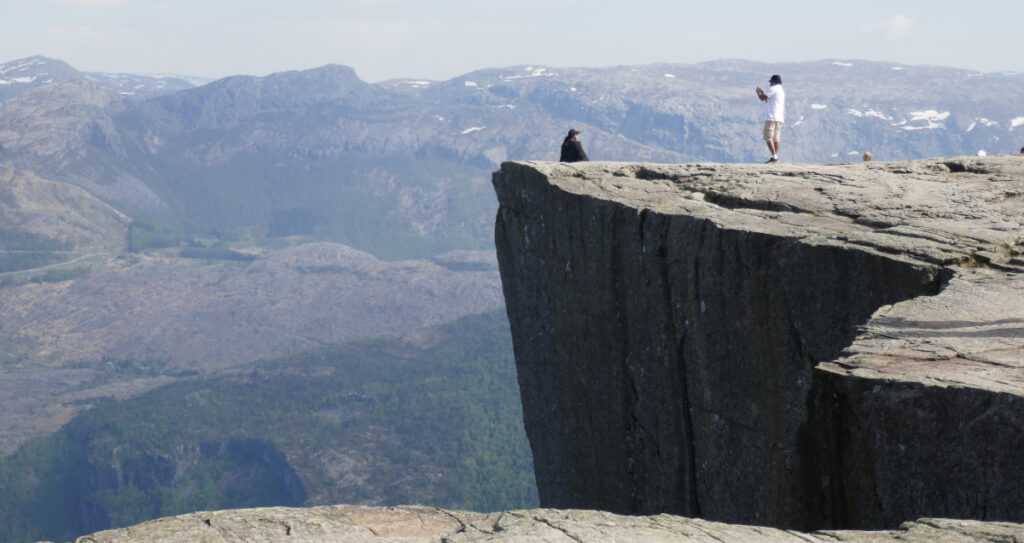
Pulpit Rock (Preikestolen) rises 604 meters over Lysefjord. The site grants visitors a viewpoint that both CNN and Lonely Planet have rated as one of the world’s most spectacular.
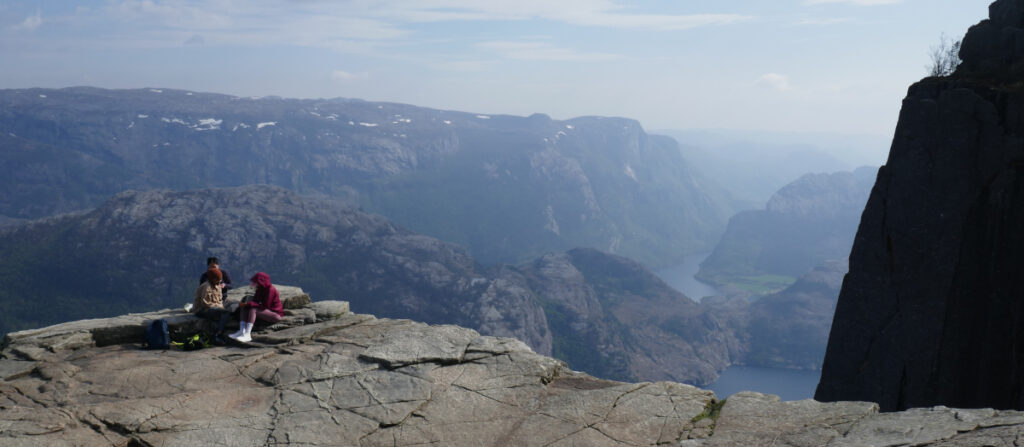
After taking in the views and taken all the obligatory pictures, we had a well-deserved coffee break before starting the decent. One would think that going down would be easy but, it is still tricky with the stone steps and uphill passages over some ridges.
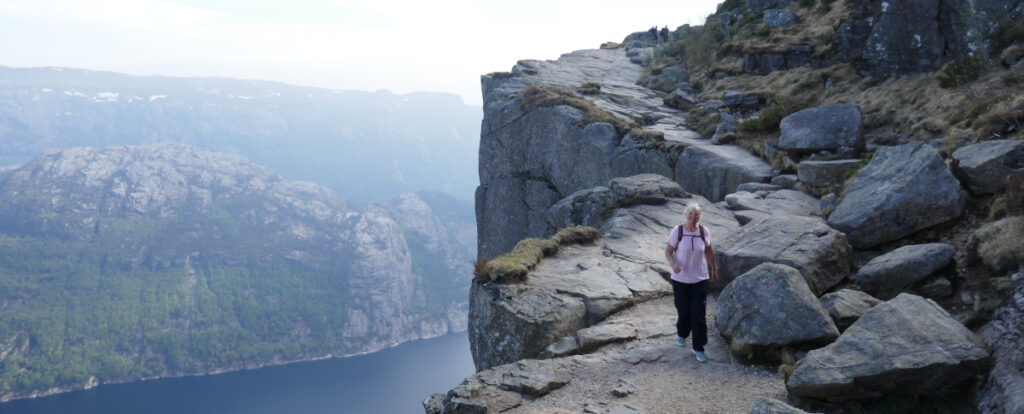
We arrived back safely with a two-minute margin to closing time, so we got ourselves well deserved bears whilst waiting for the buss. Total time (for us) was about five hours. We had walked nine kilometres with a total of 500 meters uphill.
